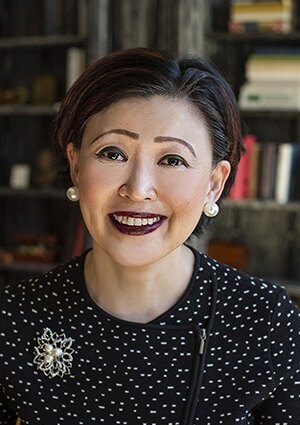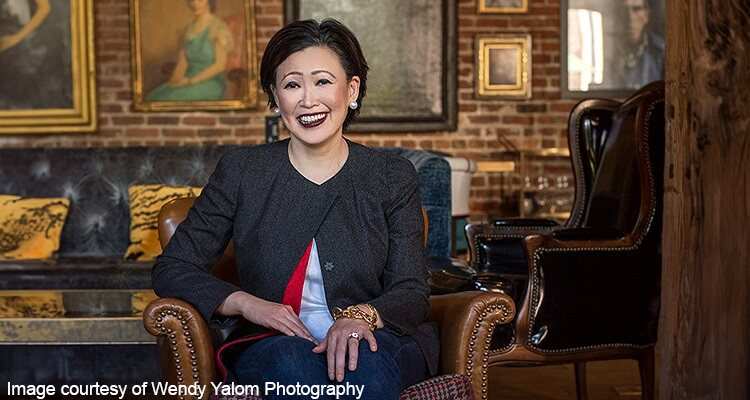Celebrating Women’s Impact in Manufacturing – Introducing Sonita Lontoh
Join us as we delve into the significant role women play in manufacturing by celebrating the resilience and determination of individuals who have broken barriers in the industry, and also considering how organizations can foster diversity and inclusion.
Sonita Lontoh: A Trailblazer in Tech and Manufacturing
Sonita Lontoh is an accomplished public company board director with expertise in innovation, technology-enabled transformation, and sustainability governance. She currently serves on the boards for Sunrun, the largest consumer solar-and-battery-as-a-service company in the US; TrueBlue, a global workforce solutions company; and as an advisor to Sway Ventures, a Silicon Valley VC firm investing in the sustainable transformation of foundational industries.
Over her three decades of experience as a senior executive at both new innovative businesses within large global Fortune 100 companies like HP and Siemens, as well as at entrepreneurial VC-backed Silicon Valley technology companies, she led programs that have positively impacted businesses, consumers, and society. She is a purpose-driven leader and is passionate about advancing technology for humanity.
Accolades and Recognitions: Breaking the Glass Ceiling
Sonita has been recognized by the White House, the US Department of State, and inducted into the Asian American Hall of Fame, as well as the Women in Manufacturing Hall of Fame. She has also been recognized as one of the Top 30 AAPI Board Directors by Board Prospects, the Directors to Watch by Directors & Boards magazine, and the Most Influential Women in Business by the San Francisco Business Times.
The Path to Leadership in a Diverse and Inclusive Industry
As an Asian American woman, Sonita is no stranger to the underrepresentation that women and minorities have historically faced within the technology and manufacturing industry, particularly at the highest levels of leadership. However, the status of women in the manufacturing sector is improving, especially with governments and organizations around the globe now encouraging uptake of STEM subjects by women and girls, and companies supporting women to further their careers. Sonita’s own career journey serves as an example of how women can aspire to be leaders in the industry and how companies that embrace diversity and inclusion can create long-term value.
The Importance of Diversity in Business
The reason diversity is so crucial in business is, according to Sonita, because it enables diversity of thought. “Diversity of thought helps us look at things from different perspectives, which contributes to us making more optimal and informed business decisions,” she opens. Sonita believes that diversity is not only about gender or race, but also includes different life experiences, career journeys, and subject matter expertise – all of which contribute to diversity of thought.
In a way, diversity has always been part of Sonita’s life, both personally and professionally. Originally from Indonesia, the fourth most populous country in the world, Sonita grew up in a diverse environment with family and friends who came from different ethnicities, cultures, and religions, enabling her to appreciate diversity from an early age.
Educational Journey and Career Principles
As a teenager, she traveled – by herself – to the US to earn an undergraduate degree in engineering from the University of California Berkeley, a master’s degree in engineering from the Massachusetts Institute of Technology (MIT), and an MBA from Northwestern’s Kellogg. These experiences enabled Sonita to further develop a global and diverse perspective on life.

Image courtesy of Wendy Yalom Photography
Although uncertain about her desired career path, Sonita developed a few guiding principles during her studies. “I realized that I loved the intersection of innovative technology, business, and policy, and that I wanted to work in an industry that contributed something to society beyond just selling products,” she states.
“After graduation, I leveraged these guiding principles to work in innovative businesses in technology and manufacturing, where I combined my passion, skills, and most importantly, purpose,” Sonita reflects. “Passion itself is not enough; you must combine that passion with your skills, whatever they may be, and a social purpose. When you switch from focusing on yourself to how you can be a contributor to society, business becomes much more satisfying and rewarding.”
In her most recent operating role, Sonita served as the global CMO for HP’s disruptive 3D Printing and Digital Manufacturing business, a technology leader with a revenue of $60 billion and over 55,000 employees. In this role, she led the launch and growth of the new division as HP looked to provide superior customer experience while disrupting industries and creating more value for shareholders.
Prior to HP, Sonita was a senior executive at Siemen’s new digital IoT business, contributing to the successful repositioning of Siemens as the trusted solutions partner to help enterprise customers succeed in their digital transformation journey. She previously held positions as a C-suite executive at Trilliant, a GE and ABB-backed smart IoT company, and at PG&E, one of the largest energy providers in the US with over 20 million customers.
Today, Sonita has transitioned into full-time ‘portfolio life,’ where she serves on several public company boards, a university advisory board, and as an adviser to a venture capital firm. As a board director, she looks to continue leveraging her expertise and leadership skills to help companies navigate new challenges and opportunities for long-term value creation.
In discussions around leadership principles, Sonita acknowledges that her leadership style has evolved over time. She explains that most people embark on their leadership journey as a positional leader, where people trust and follow due to title or position. However, she believes that the most effective leaders are those who are intentional in developing other leaders.
Making an Impact Through Leadership and Innovation
“In portfolio life, you must leverage insight and experience to help navigate new challenges or foresee issues and opportunities that others might not realize,” she explains. “As you evolve as a leader, you become less focused on your own position and instead realize that by developing others, you can achieve more organizational goals while also feeling more joy and satisfaction as a leader. Only when you can develop others can you reach this, the pinnacle of leadership.”
Although Sonita does not believe she has yet achieved the pinnacle of leadership, she is passionate in her belief that every leader should continue to raise their own leadership capabilities and be willing to invest time and energy to intentionally develop others.
Navigating the Future of Manufacturing and Technology
Turning to current trends in manufacturing and technology, Sonita suggests that the rise of AI and other advanced technologies poses both challenges and opportunities. “It creates opportunities for personalization, with consumers demanding products and solutions that are tailored to their needs,” she explains. “There are also benefits in terms of improving operational efficiency and better understanding customer needs or trends. It will, however, pose challenges to legacy systems, which must stay agile and evolve to incorporate technologies to stay relevant and competitive.”
Sustainability and ESG: Imperatives for Modern Business
Sustainability and ESG, on the other hand, are business imperatives according to Sonita. Forward-thinking companies consider sustainability as a vehicle to better navigate material risks, as well as opportunities to create competitive advantage for long-term value creation. Research also suggests that companies with good sustainability programs are more likely to attract employees, especially among younger generations, so it could also be a way for companies to attract the best talent in today’s competitive employment environment.
The Ongoing Journey for Women in Manufacturing
As our conversation returns to the topic of women in manufacturing, Sonita reflects on the changes she has witnessed throughout her career. “Women have made a lot of progress in the last decade or so,” she states. “However, we’re still far from parity, especially as we look higher within organizations to leadership roles like the C suite or on the board. It’s constantly improving, but there’s still a long way to go to achieve parity.”
Sonita proposes that to address this issue, we must look at both the supply and demand sides. “On the supply side, it has to start with intellectual capital from a young age, with parents, teachers, and the wider community encouraging more girls to study STEM subjects,” she explains. “Young women and girls also need role models, both aspirational and practical. It’s crucial that we see successful women in the C suite, in the position of CEO, or winning Nobel Prizes, as women need to know that these things are viable possibilities for them. However, it’s equally important that women have practical role models who are two-to-three steps ahead of them to share experiences and advise individuals on how to think about their next steps.”
Looking from the demand side, Sonita argues that companies must be committed to not just hiring women and underrepresented minorities, but also to creating an inclusive work environment where women can be retained and developed into leaders. The tone and culture must come from the top down to ensure that development programs and inclusivity are not just feel-good exercises but rather, completely integrated into the company’s overall strategy.
In articulating the importance of diversity, Sonita stresses that it is particularly crucial in enabling diversity of thought. “Company boards need to engage in healthy, open, and robust debates to make the best decisions, as looking at an issue from a single perspective is extremely dangerous,” she says. “This is especially true when launching new products or solutions to ensure the interconnectedness of the innovation. By embracing diverse backgrounds, companies hear and debate different viewpoints, which results in more optimal outcomes.”
Advice for the Next Generation of Leaders
Upon reflection, we ask Sonita what advice she would give to her younger self if given the chance. “Don’t be afraid to make mistakes,” she answers without hesitation. “Over the years, I’ve learned that making mistakes is one of the essential ingredients in our learning journey because careers – and life in general for that matter – are all about continuous improvement. The process is just as important as the outcome if we can reflect, learn, and improve.”
Throughout her career, Sonita has achieved many milestones and earned several accolades, but it is perhaps her unwavering focus on ensuring that her work delivers positive impact to humanity that will continue to inspire women and minorities for decades to come.
